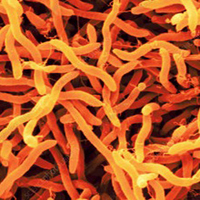The ability of Aliarcobacter butzleri strains isolated from foods of animal origin in Costa Rica to form biofilm

Submitted: 11 April 2020
Accepted: 22 March 2021
Published: 25 June 2021
Accepted: 22 March 2021
Abstract Views: 1132
PDF: 337
HTML: 5
HTML: 5
Publisher's note
All claims expressed in this article are solely those of the authors and do not necessarily represent those of their affiliated organizations, or those of the publisher, the editors and the reviewers. Any product that may be evaluated in this article or claim that may be made by its manufacturer is not guaranteed or endorsed by the publisher.
All claims expressed in this article are solely those of the authors and do not necessarily represent those of their affiliated organizations, or those of the publisher, the editors and the reviewers. Any product that may be evaluated in this article or claim that may be made by its manufacturer is not guaranteed or endorsed by the publisher.

 https://doi.org/10.4081/ijfs.2021.9020
https://doi.org/10.4081/ijfs.2021.9020



